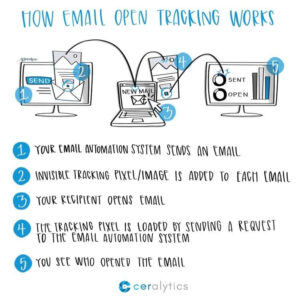Another company endures lawsuits over data harvesting. Companies continue to find ways of gathering, studying and selling your data. What for? What’s the end game? Now we have to contend with “Tracking Pixels” … oh come on!
Meta Lawsuit For Harvesting Financial Data Via Tracking Pixels
Bottom Line Up Front: A group of anonymous plaintiffs who filed their taxes online in 2020 using H&R Block have sued Meta, accusing the company of violating users’ trust and privacy. A recent Markup investigation revealed that H&R Block, along with other popular tax-filing websites like TaxAct and TaxSlayer, have been sending users’ sensitive financial information to Meta through its Pixel tracking tool.
For background, a Pixel is a piece of code companies can embed on their websites so they can track visitors’ activities and show Facebook and Instagram users to target with ads.
The tax prep websites had been transmitting personal information, such as income data, filing statuses, refund amounts and dependents’ tuition grants, to Meta through that code. The tax-filing services had already changed their Pixel settings to stop sending information or had been reevaluating how they used Pixel by the time Markup’s report came out.

Meta Pixel Function
In a statement sent to Engadget when the news first came out, Meta said that advertisers are prohibited from sharing personal information and that it uses an automated system that can filter out sensitive content sent through Pixel. The plaintiffs acknowledged in their complaint (PDF, courtesy of The Markup) that Meta does require businesses that use Pixel to “have lawful rights to collect, use and share” user data before providing the company with any information. However, the plaintiffs argue that Meta makes no effort to enforce that rule and instead relies on a “broken honor-system” that has resulted in “repeated, documented violations.” The lawsuit is seeking class action status for people who used the tax prep services mentioned in the publication’s report. The services themselves, however, were not named as defendants in the case.
Have you ever shopped for a product online only to see the item appear repeatedly in your Facebook or Instagram feeds? This is often the result of the Meta Pixel (formerly called the Facebook Pixel), a sophisticated snippet of computer code used for tracking you around the web, embedded in the HTML of a website. Marketing pixels, aka tracking pixels, are essentially tiny snippets of code that allows a website owner to gather information about visitors on a website to include how they browse, what type of ads they click on, etc. Tracking pixels are also used to measure a marketing campaign’s performance, track conversions, and build an audience base. (EDITORS NOTE: There are also retargeting pixels as well as conversion pixels but for brevity, we will not cover that in depth. You can read more at this link.)
The Markup-Mozilla Rally Facebook Pixel Hunt Tool
The Markup’s Facebook Pixel Hunt, in collaboration with Mozilla Rally, is the first large-scale crowdsourced study of the presence of the Meta Pixel and the data it collects in real-world scenarios when it is encountered while logging in to websites, submitting forms, buying products, and during everyday browsing activities. Using data collected from participants in their study, they checked the pervasiveness of the Meta Pixel on the internet and the kind of information the tracker collects.
- As of 25 April 2022, the study had 5,447 participants, but that number can change daily.
- Most participants (80 percent) have encountered the Meta Pixel on websites they visit.
- Sensitive user information might be sent to Meta from any number of sites without the person’s awareness or consent.
The goal of the study was to gain insight into that data collection as the Markup describes their collaboration with Mozilla Rally in their Our Study section. (EDITORS NOTE: You can read more about the technical details of how the study assesses whether Meta is collecting personally identifiable or sensitive information from a user by referring to the How We Analyze the Pixel Data section of their methodology.)
Meta Pixels Lead To Meta Cookies
Meta can also connect website visitors to their Facebook profile using third-party cookies. When a user logs into Facebook, Meta sets certain cookies on their browser. While this logged-in user browses other websites that hold the Meta Pixel, the tracker communicates with Meta’s servers. (EDITOR’S NOTE: You can read more about Meta’s cookie policy at the following link.)
When that happens, many web browsers those that do not block third-party cookies will also attach those previously set cookies. Like other third-party cookies, those set by the pixel allow Meta to build detailed dossiers about the site’s users as those users traverse the web, so advertisers can target people with customized ads on Facebook and Instagram based on their online behavior.
In case the cookies are not enough to match a user browsing a website to a Facebook or Instagram profile, Meta also allows the website to send personal information a user enters in a form to match them to their Facebook or Instagram profile, even if they are not logged in to Facebook at the time. This feature is called Advanced Matching and is described in more detail in the Advanced Matching Parameters section.
No To Spy Pixels Website: A Useful Resource
 I recently found a website entitled “No To Spy Pixels“. The website offers a good overview of tracking pixels, add-ons and extensions that users can install to detect tracking pixels in emails as well as templates to lodge complaints should they detect tracking pixels.
I recently found a website entitled “No To Spy Pixels“. The website offers a good overview of tracking pixels, add-ons and extensions that users can install to detect tracking pixels in emails as well as templates to lodge complaints should they detect tracking pixels.
Tracking pixels supply highly beneficial insights into how users behave and what they are doing when browsing an email. Whenever an email is delivered and opened by the recipient, these embedded pixels send notifications to the sender of that email which, in this case, is the marketer. They use the HTML coding of an email to see what steps the recipient/email subscriber takes next – whether they click on the links that lead to the brand’s website or not.
Conclusion
As this newsletter demonstrates, tracking pixels are quite pervasive and present a challenge to our collective privacy and reducing a user’s Digital Exhaust. The main difference is that cookies are quite conspicuous and can be disabled, while tracking pixels are not easily noticed and cannot be blocked by email providers or browser features without some third-party help. A tracking pixel is triggered when, for instance, a web page is loaded in the browser unlike cookies, which are placed on a user’s browser, tracking pixels will send information directly to web servers, and cannot be easily disabled by the end-user.
